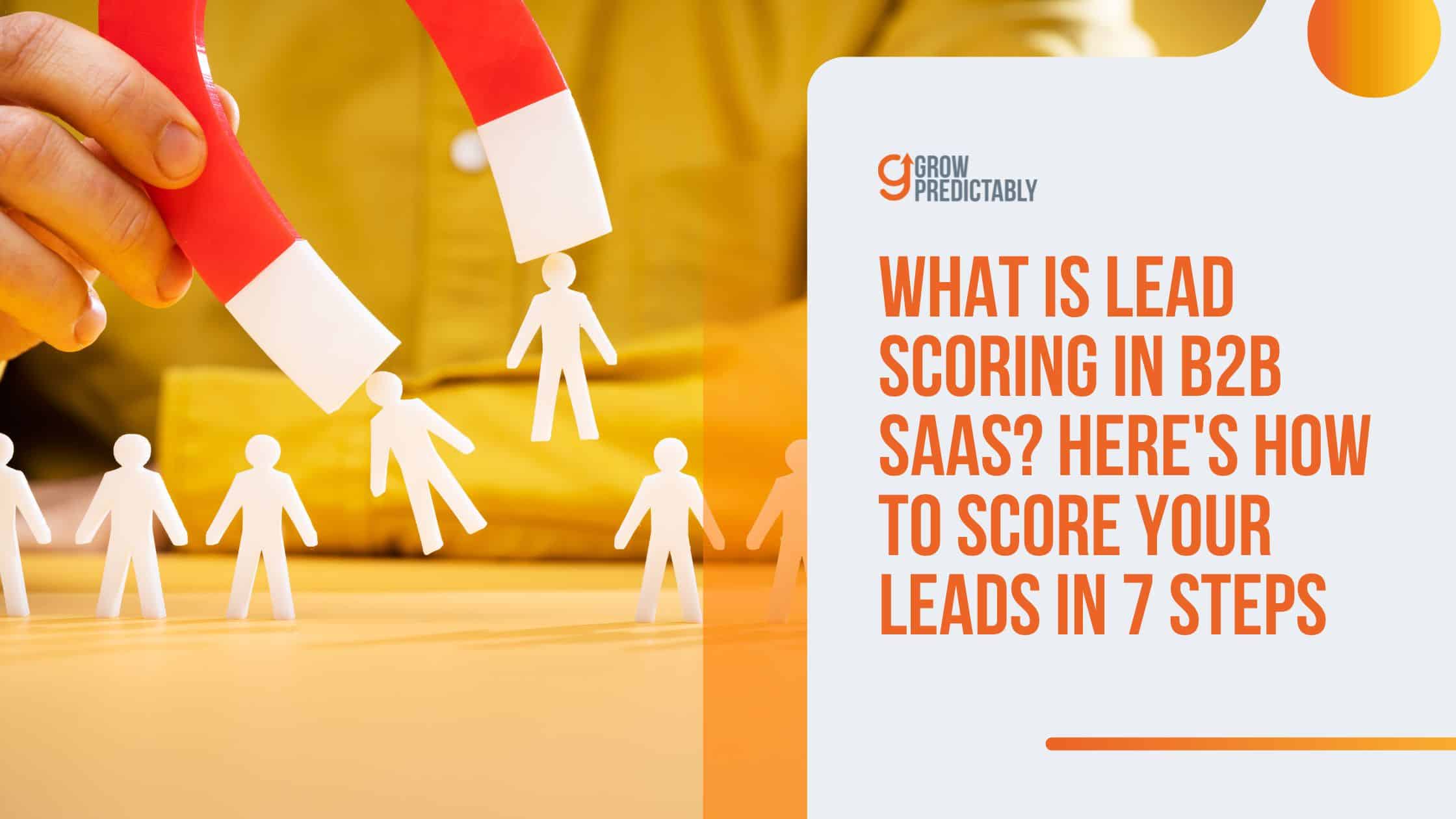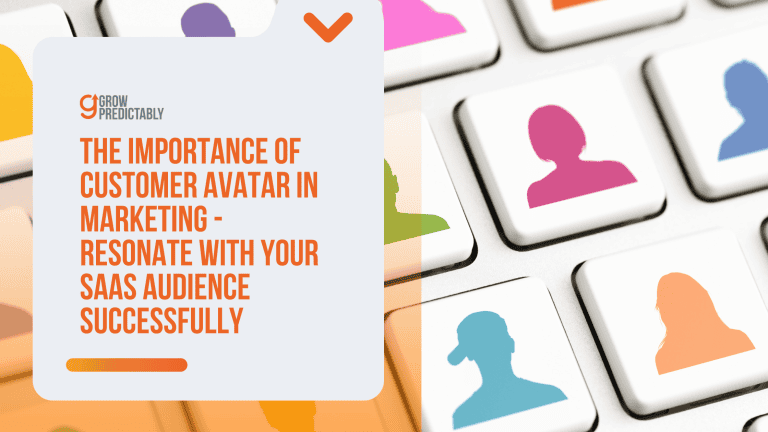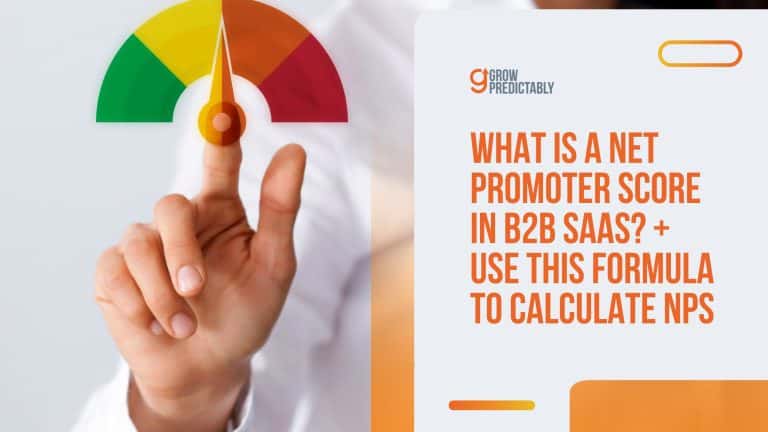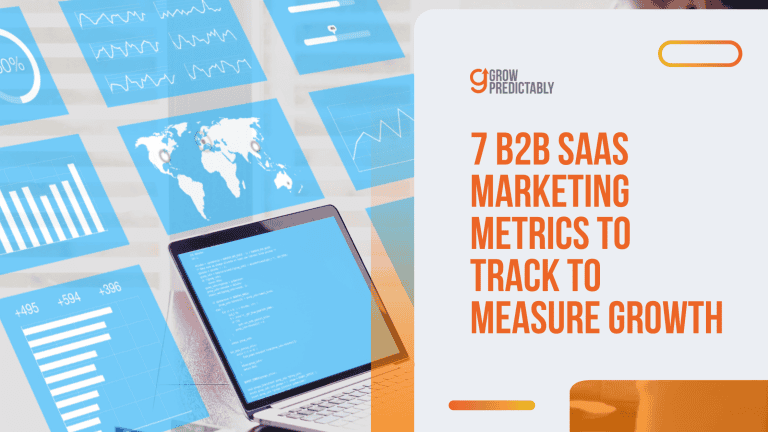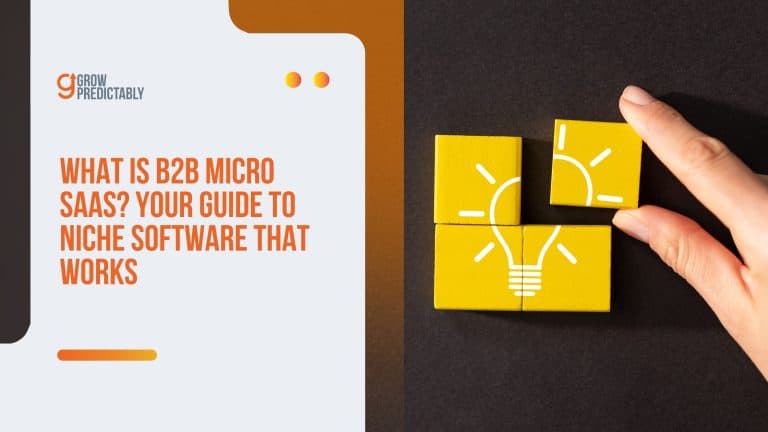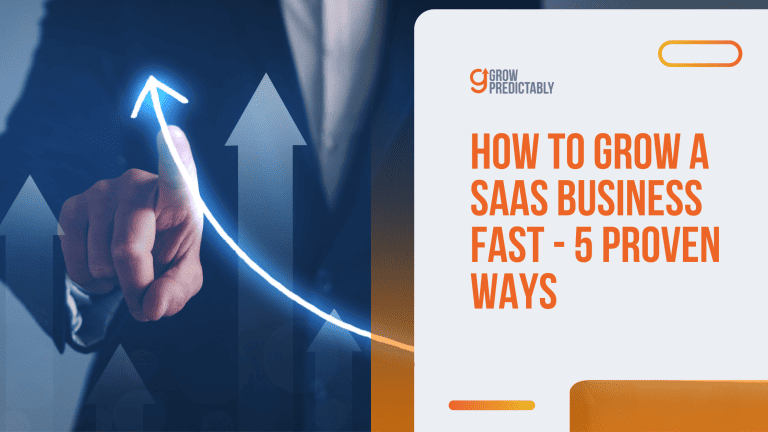What is Lead Scoring in B2B SaaS? Here’s How to Score Your Leads in 7 Steps
If you’re in the B2B SaaS space, you might wonder, “What’s lead scoring all about?” Well, if anything, it’s one of the many important B2B marketing terms to familiarize oneself with.
Think of lead scoring as your way to pinpoint which potential customers, or leads, are most likely to buy what you’re selling. It’s a bit like the grading system we had back in school.
Each lead earns a lead score based on what they do and who they are. So, whenever someone interacts with your SaaS business, they score some points.
These actions signal their interest, and obviously, the more interested they are, the higher their score climbs. But it’s not just about the actions they take.
Their background plays a part, too! For example, if your SaaS is tailor-made for tech companies, a lead from the tech industry might score higher than one from a different sector.
This system helps your sales team zero in on the hottest leads—the ones who are most likely to become paying customers. It’s a real time-saver and boosts efficiency since your team won’t waste time chasing after leads that aren’t as likely to bite.
Let’s dig a little deeper into what this B2B marketing term is all about…
TL;DR
AEO is a strategy that helps position different sources directly in AI-generated answers, helping you become an authoritative source for your coaching clients who seek immediate, strategic insights. Unlike SEO, AEO focuses on structuring content to deliver immediate value to specific queries on AI search engines.
KEY TAKEAWAYS
- Tailor your content to match the sophisticated queries of premium clients by focusing on direct answers to complex executive problems.
- Implement advanced schema markup and optimize for voice search to enhance visibility in AI-driven platforms, ensuring your expertise is recognized and surfaced efficiently.
- Establish thought leadership through comprehensive content clusters and strategic professional networks, which amplifies your expertise and visibility in executive circles.
What is Lead Scoring in Simple Terms?
Lead scoring is like a ranking system for potential customers. According to a resource from North Kentucky University, lead scoring assigns value to each lead based on their level of interest and qualification. (Source)
Once a potential customer shows interest in your business, in whatever way or form, they become a lead.
Now, imagine you’re a B2B SaaS company with a list of leads. Lead scoring helps you determine who to call first by giving each lead specific lead scores. You look at what actions each lead has taken. Did they visit your website many times? That gets a high score. Did they ignore your emails? That gets a low score.
Lead scoring helps you prioritize. You spend your time on leads that seem the most interesting. This way, your sales team focuses on the best leads and increases the chances of getting deals closed.
It’s all about working smarter, not harder. Wouldn’t you want to know which leads are worth your time? That’s what lead scoring does for you.
Why is Lead Scoring Important in B2B SaaS?
If anything, lead scoring is a must for B2B SaaS businesses, regardless of the number of leads they have. It’s an integral method for optimizing sales and marketing efforts in B2B SaaS.
Implementing a predictive lead scoring strategy is crucial for prioritizing leads based on their quality and likelihood to convert. Why?
Here are three reasons that support the relevance of lead scoring for B2B SaaS:
1. Prioritizes High-Quality Leads
Lead scoring helps you identify which leads are most likely to convert. By using a lead scoring tool and a model to rank leads based on their actions and characteristics, your sales team can focus on prospects who show real interest in order to properly manage your most promising leads. (Source)
This means less time wasted on unqualified leads and more time closing deals with the use of an effective lead scoring tool. Isn’t that a win-win?
2. Improves Efficiency for Marketing and Sales Teams
With a lead scoring tool, your marketing team gets valuable insights into what campaigns work best. They can tailor their efforts to attract high-scoring leads, making each campaign more effective.
According to an online resource form William Paterson University, “[Marketing and sales alignment] results in higher quality sales leads, marketing promotions, content that converts leads to buyers and an ever-expanding product or service portfolio that requires less selling and marketing effort.” (Source)
Implementing a lead scoring tool allows you to quantify and evaluate the quality of leads based on specific criteria, aligning sales and marketing teams to improve lead qualification and enhance conversion rates. This targeted approach ensures better ROI and smarter use of marketing resources.
Why settle for mediocre results when you can aim higher?
3. Enhances Customer Insights
Lead scoring provides detailed data on customer behavior and preferences. This helps refine your ideal customer profile and informs your overall strategy through predictive lead scoring.
Understanding what drives your leads can help you make more informed decisions, aided by predictive lead scoring, and improve your product offerings. Establishing clear scoring criteria allows you to systematically evaluate specific attributes and behaviors, helping to distinguish leads with the highest conversion potential.
Wouldn’t you like to base your strategies on solid data rather than guesswork?
What Is The Difference Between Lead Qualification and Scoring?

People often mix up lead qualification and lead scoring because both determine if potential customers are worth pursuing. It’s easy to see why there’s confusion—they’re closely related but serve different purposes.
Lead qualification is about deciding if a lead fits your ideal customer profile. It’s like a checklist.
Does the lead have the proper budget? Do they need what you’re selling? Can they make a decision quickly? If most boxes are checked, the lead is qualified.
Lead scoring, on the other hand, is a ranking system. Imagine you have a list of leads. A lead scoring model helps you decide who gets attention first by giving each lead a score based on their actions and characteristics.
Did they visit your website multiple times? They get a high score. Did they ignore your emails? Low score.
The big difference? Lead qualification is binary—it’s basically a “yes or no.” Either a lead qualifies, or it doesn’t. Lead scoring is more nuanced. It’s about prioritizing leads based on how interested they seem.
In short, lead qualification checks if a lead could be a qualified lead at all. A lead scoring model tells you how likely they are to buy soon. Both methods help you zero in on the best prospects, but they do it in different ways. Use them together, and you’ll spend your efforts wisely.
What is the Lead Scoring Model in Principles?
Lead generation takes effort and a team to find which among your many prospects can become paying customers. A lead scoring model helps you do that through a process.
The lead scoring process integrates lead scoring systems with CRM platforms, allowing marketing and sales teams to access real-time data and prioritize leads based on their readiness to convert. It’s like having a tool that tells you where to focus your efforts.
Here are the key principles of a lead scoring model:
- Know Your Ideal Customer: Identify the traits of your perfect customer. This sets the foundation for your lead scoring model.
- Track Lead Actions: Monitor how leads interact with your brand. Website visits, email opens, and downloads all count in the lead scoring system.
- Score Engagement: Give points for each action. More points mean higher interest. This is central to the lead scoring model.
- Consider Demographics: Look at job titles, company size, and industries. Leads matching your ideal profile get higher scores in your lead scoring system.
- Keep It Consistent: Use a scoring system everyone understands. Consistency ensures fair scoring and enhances your lead scoring system.
- Review and Adjust Regularly: Check your criteria often. Make sure they align with your goals and adjust your lead scoring model as needed.
- Focus on Top Scores: Prioritize leads with the highest scores. They’re more likely to convert, thanks to an effective lead scoring system.
These principles make the lead scoring model effective and keep your sales team focused. But principles won’t work until you put them into action, right?
Here are steps on how to score your leads properly and efficiently.
How to Score Your Leads in 7 Steps
Many people think lead scoring is complex and hard to do. But it doesn’t have to be that way. Lead scoring becomes easy and effective with a clear plan and simple steps. Everyone’s approach to lead scoring can actually differ from business to business.
Aligning your lead scoring efforts with a clear understanding of buyer personas and your broader business strategy is crucial for long-term success. But if you want to start with lead scoring, this seven-step guide can serve as the backbone of your process.
As you learn more about this method, you can eventually modify it to better suit your business.

Here’s a straightforward way to do lead scoring:
1. Define Your Ideal Customer
Lead scoring starts with identifying your ideal customers; it will help you understand what makes them valuable by pointing out what makes them resonate with your offerings. Using a customer avatar canvas makes this entire process 10x easier.
Knowing their traits, like job titles and industries, guides you in assigning scores based on relevance. This helps in defining marketing qualified leads, ensuring better alignment between sales and marketing efforts.
This ensures you focus on leads that have resemblances with your existing customers because when they do, they’re more likely to convert. You can perform lead scoring accurately and effectively by pinpointing these key characteristics.
2. Identify Key Actions
List down actions that interested leads take when showing interest in your product or service. Predictive lead scoring can further enhance this process by using artificial intelligence and machine learning to analyze data patterns from previous customers, automate the evaluation, and focus on leads with the highest likelihood of conversion.
This step is crucial because it will help you differentiate which leads are interested in your business from those who are not. These are the actions that you will score in the next step.
Common actions include:
- Visiting your website
- Downloading content (eBooks, whitepapers)
- Signing up for webinars
- Filling out contact forms
3. Assign Points to Actions
Assign lead scores to each action based on its importance. This scoring helps you prioritize leads by their engagement level. The more points a lead accumulates, the higher their interest. This way, you can focus on those most likely to convert.
Here’s a simple way to do this:
- Website Visit = 5 points
- Content Download = 10 points
- Webinar Signup = 15 points
- Form Submission = 20 points
4. Score Based on Demographics
Score leads based on how well they match your ideal customer profile. Establish clear scoring criteria to evaluate specific attributes and behaviors of your leads systematically.
This method helps you prioritize leads that are a better fit for your product or service. You can target the most likely convert leads by focusing on these key demographics.
Assign points like this:
- Job title matches: 10 points
- Industry fits: 8 points
- Company size aligns: 5 points
5. Combine Scores
Add up the points from actions and demographics to get a total score. This total score shows the lead’s level of interest and qualification.
Various lead scoring models, including rule-based and predictive models, can be used to assess lead compatibility and prioritize leads effectively.
6. Set a Threshold
Setting a threshold in lead scoring helps you prioritize your efforts. You can focus on the most promising prospects when you define scores for hot, warm, or cold leads.
Hot leads are ready to buy, warm leads need nurturing, and cold leads require more attention. Implementing a lead scoring system allows you to quantify and evaluate the quality of leads based on specific criteria, aligning sales and marketing teams to improve lead qualification and streamline processes.
This segregation ensures efficient use of resources and time, letting you chase leads that are more likely to convert.
7. Regularly Review and Adjust
Check your scoring system periodically to ensure it aligns with your business goals. Implementing a robust lead scoring strategy is essential for prioritizing leads based on their quality and likelihood to convert.
Update point values and criteria as needed. This process helps you focus on leads that are more likely to convert. It saves time and makes your marketing efforts more effective.
Types of Lead Scoring Models
Understanding lead scoring models isn’t optional—it’s essential. In an age where every second counts, knowing which model fits your business can make the difference between closing a deal and losing a prospect. Each model offers unique advantages tailored to different business needs.
Let’s dive into what each one brings to the table:
Manual Lead Scoring
Manual lead scoring in B2B SaaS is great for teams in their early stages. It involves manually evaluating leads against set criteria such as company size or engagement level.
- Use manual lead scoring to maintain direct control over what attributes you value in leads.
- It’s especially effective for onboarding processes or niche markets where personalized attention pays dividends.
- However, as your lead pool grows, manual scoring can become labor-intensive and may fail to keep pace with high-volume environments.
Manual scoring allows B2B SaaS firms a foundational grip on their lead characteristics, helping them tailor their services during initial growth phases.
Automated Lead Scoring
When scaling is your game, automated lead scoring for SaaS emerges as a necessity. It’s built to handle the complexity and volume typical in B2B environments.
- Automates data analysis, making insights accessible in real-time, which is crucial for agile SaaS operations.
- Helps reduce human error and ensures consistent application of scoring criteria, allowing your sales teams to focus on conversion strategies.
- This model supports scalability, adapting effortlessly to the increasing influx of leads as your business expands.
Automated scoring is indispensable for SaaS businesses facing rapid growth—it seamlessly transforms data into actionable insights.
Predictive Lead Scoring
Predictive lead scoring leverages advanced analytics, making it especially valuable for B2B SaaS companies seeking to anticipate customer needs and behaviors.
- Utilizes machine learning algorithms to analyze historical and current data, forecasting which leads are most likely to convert.
- Allows companies to engage prospects proactively, optimizing marketing efforts and resource allocation.
- According to Forrester, companies utilizing predictive technologies saw a 15% increase in ROI Forrester Research.
In B2B SaaS, where the sales cycle often involves multiple stakeholders, predictive scoring helps team up precision timing with strategic engagement.
Behavioral vs. Demographic Scoring
Incorporating both behavioral and demographic scoring offers a comprehensive view of your leads—a necessity for B2B SaaS firms.
- Behavioral scoring tracks customer interactions, like how frequently a prospect engages with demos or webinars.
- Demographic scoring considers business-relevant attributes such as industry, company size, and role in purchase decisions.
- Using both ensures that you are targeting decision-makers with content that resonates at various points of their customer journey.
This dual approach enhances lead prioritization and targeting, aligning marketing efforts with the ideal customer profile.
What Is The Impact of Lead Scoring?
Remember: Lead scoring is a must-practice for effective lead generation and businesses wanting to grow smartly. It helps you identify and prioritize leads, ensuring that your efforts are focused where they matter most.
Now that you know how to score leads, you should also know its impacts.
Here are five ways lead scoring affects businesses:
1. Prioritized Sales Efforts
With lead scoring, your sales team knows which leads to focus on. Sales reps gather valuable insights from their interactions, influencing lead scoring and conversion rates. This means they spend less time on unqualified prospects and more on those ready to buy.
How much easier would that make your job?
2. Enhanced Marketing Strategies
Lead scoring gives marketers insights into what works. They can tailor campaigns to attract high-scoring leads, boosting the effectiveness of marketing efforts.
Wouldn’t it be great to see consistent results from your campaigns?
3. Improved Conversion Rates
Based on an article ‘The Ultimate Guide to B2B Lead Quality’ from The Insight Collective, “Improved lead quality directly correlates with enhanced sales productivity and, by extension, significant revenue growth.” (Source)
By focusing on high-quality leads, your conversion rates will likely increase. This means more sales and a better return on investment.
Who doesn’t want to see those numbers rise?
4. Better Resource Allocation
Lead scoring helps you allocate resources more efficiently. You can invest time and money in leads most likely to convert.
Why waste resources when you can use them wisely?
5. Data-Driven Decisions
Lead scoring provides valuable data on customer behavior and preferences. This helps refine your strategies and make smarter decisions.
Isn’t it better to rely on data than guesswork?
How to Get Started with Lead Scoring
Lead scoring is a game-changer for any business looking to optimize its sales and marketing efforts. It helps your sales team focus on the most promising prospects, which increases their productivity and conversion rates.
Isn’t it great when you can spend your time where it counts the most? It provides valuable insights for your marketing team, allowing them to tailor campaigns that attract high-quality leads.
Effective lead scoring is crucial for aligning the efforts of sales and marketing teams. It ensures that the leads passed from marketing to sales are qualified, ultimately enhancing the conversion rate and strengthening interdepartmental relationships. This results in better ROI and more effective use of resources.
Why guess when you can use data to drive success? Throw more efficiency into your lead management process with the seven-step lead scoring method you learned in this blog.
By integrating lead scoring into your strategy, you will improve your team’s performance and make smarter, data-driven decisions that propel your business forward. Scores can help you find prospects with the highest potential to become customers, but if you want loyal fans, you need to guide them on a journey that feeds them value every step of the way.
If that’s what you want to attain from your prospects, start by downloading this FREE ‘Customer Value Journey’ Worksheet below.
Technology and Tools for Lead Scoring
The B2B SaaS industry thrives on efficiency, and technology is critical in optimizing lead scoring processes.
Let’s break down the essential tools that power these capabilities:
CRM Software
CRMs in B2B SaaS are pivotal in creating an unbroken chain of customer interactions and data-driven decisions.
- CRM systems consolidate sales processes and customer interactions, providing actionable insights into how leads traverse the buyer journey.
- By centralizing data, CRMs facilitate strategic account management, helping you understand where your leads come from and how best to engage them.
- According to Nucleus Research, using a CRM can result in a sales productivity increase by up to 41% Nucleus Research.
For B2B SaaS companies, a robust CRM is essential to manage complex sales processes and lengthy sales cycles efficiently.
Marketing Automation Tools
In B2B SaaS, where the lead nurturing process is comprehensive, marketing automation is a powerful ally.
- These tools automate routine marketing tasks, streamlining lead nurturing through personalized email campaigns, social media updates, and more.
- Automation ensures that messaging is consistent and timely, critical for maintaining engagement across long sales cycles.
- Reports show that companies using marketing automation experience a 451% increase in qualified leads Demand Gen Report.
For B2B SaaS, marketing automation enhances workflow efficiency, ensuring that no lead falls through the cracks.
Predictive Analytics Software
Utilizing predictive analytics gives B2B SaaS companies a competitive edge by dissecting data patterns to predict future behaviors.
- Predictive tools harness AI and machine learning to identify high-potential leads long before typical engagement patterns would reveal them.
- With these insights, SaaS companies can refine their marketing strategies, better aligning them with customer needs.
- IDC highlights that leveraging predictive analytics can reduce customer churn by 20% and increase revenue by 5% IDC Statistics.
This foresight allows SaaS marketers to gain strategic advantages, proactively crafting campaigns that resonate with potential clients.
Custom Scoring Solutions
For SaaS companies looking for tailor-fit solutions, custom scoring offers precision beyond off-the-shelf products.
- Solutions can be precisely engineered to fit the nuanced requirements of varying SaaS business models.
- Custom tools are designed to integrate seamlessly with existing systems, ensuring that they enhance rather than disrupt current workflows.
- By deploying customized solutions, companies can better track the metrics that matter most to their specific market dynamics.
Investing in custom solutions brings competitive superiority by delivering lead scoring methodologies that resonate with unique operational demands.
With these technologies, B2B SaaS companies can elevate their lead scoring strategies, ensuring ongoing alignment with market needs and optimized resource deployment.
What is Lead Scoring in B2B SaaS?
Lead scoring in B2B SaaS is a methodological approach used to rank potential customers based on their readiness to purchase. It involves assigning values to leads depending on various criteria, such as engagement with marketing activities, demographic data, and online behavior.
This helps sales and marketing teams prioritize their efforts, focusing on leads with the highest potential for conversion. By effectively scoring leads, businesses can enhance their efficiency and streamline the sales process.
How does lead scoring improve sales and marketing alignment?
Lead scoring improves sales and marketing alignment by establishing a shared understanding of what constitutes a high-quality lead. It provides objective criteria, ensuring both teams work towards the same goals using consistent metrics.
By identifying and targeting top prospects, it fosters collaboration, improves communication, and reduces friction between departments. This alignment results in more seamless handoffs and a unified strategy in converting leads into customers.
Why is lead scoring important for B2B SaaS companies?
Lead scoring is crucial for B2B SaaS companies because it enables them to efficiently allocate resources by targeting leads that are most likely to convert. It aligns sales and marketing efforts by providing a data-driven framework to quantify lead quality.
This not only reduces the time spent on unqualified leads but also improves conversion rates and sales productivity. Ultimately, it leads to better customer acquisition and higher returns on investment.
What are common criteria used in lead scoring for B2B SaaS?
Common criteria used in lead scoring for B2B SaaS include demographic information such as industry, company size, and job role. Behavioral factors like frequency of website visits, engagement with content (e.g., downloading whitepapers or attending webinars), and responsiveness to emails are also key indicators.
Additionally, firmographic data, purchase intent signals, and past interactions with the sales team can further refine scores. Combining these criteria helps businesses create a nuanced picture of each lead’s potential to convert.
More Discoveries Beyond Predictive Lead Scoring
We’ve zipped through the ins and outs of lead scoring like a rocket. It’s crystal clear now. This isn’t just some marketing fluff; it’s a powerhouse strategy that’s essential for any B2B SaaS business itching to skyrocket its sales and streamline its efforts.
It’s pretty exciting stuff! You’re not just shooting in the dark by assigning those precious points to your potential customers based on their actions and backgrounds. You’re becoming a laser-focused, lead-converting machine.
Effective lead scoring not only allows sales teams to prioritize high-quality leads but also facilitates better communication and feedback between departments, ultimately leading to more successful engagement and conversions.
And let’s be real, who wouldn’t want that? But hey, don’t let the journey end here. Keen for more? Jump into our blog for a deep dive into topics that can set your business sailing smoothly.
There’s always a fresh perspective or a nugget of wisdom to help you push the boundaries of what you thought possible.

